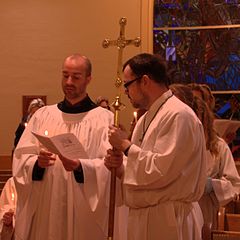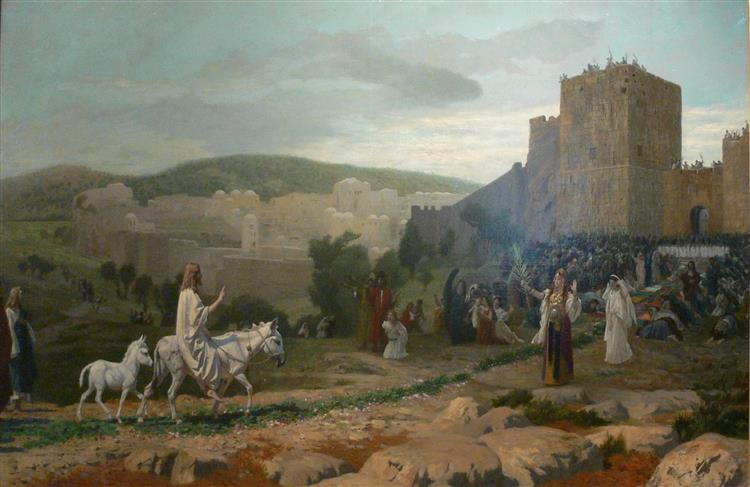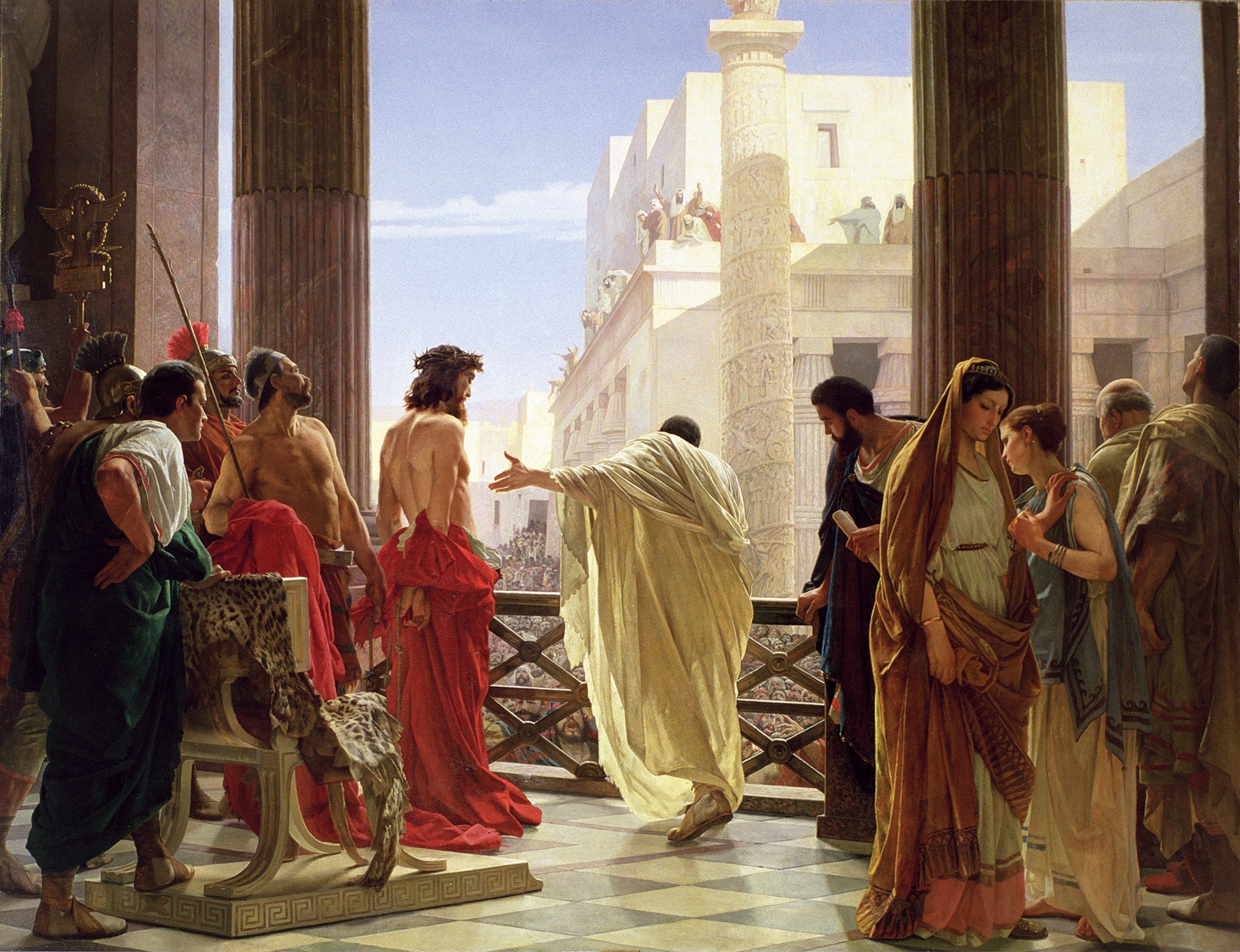* * * *

* * * *
Welcome to “read the Bible – expand your mind:”
The Book of Common Prayer says that by sharing Holy Communion, Christians become “very members incorporate in the mystical body” of Jesus. The words “corporate” and “mystical” are key. They show that a healthy church has two sides, with the often-overlooked “mystic” side posing the question, “How do I experience God?” This blog will try to answer that.
It has four main themes. The first is that God will accept anyone. (John 6:37.) The second is that God wants us to live lives of abundance.(John 10:10.) The third is that Jesus wants us to read the Bible with an open mind. (As it says in Luke 24:45: “Then He [Jesus] opened their minds so they could understand the Scriptures.”) The fourth theme – another one often overlooked – is that Jesus wants us to do even greater miracles than He did. (John 14:12.)
And this thought ties them together:
The best way to live abundantly and do greater miracles than Jesus is: Read, study and apply the Bible with an open mind. For more see the notes or – to expand your mind – see the Intro.
In the meantime:
Make that Professor Molly. That is, the next major Feast Day is for St. Matthias, February 24. I’ll cover that in a week or so, but in the meantime, about Molly Worthen, the Professor.
My Sabbath starts on Saturday evening at 6:00, and runs to 6:00 Sunday evening. (See Psalm 55:17, and the Notes.) During that time – not counting time in church – I watch “Great Courses Plus.” Specifically, lectures on church and Bible subjects, and one of my favorites is Professor Worthen’s History of Christianity II. Last weekend I re-watched her Lecture 2, “Luther and the Dawn of Protestantism.” What caught my attention – this time around – was her saying that Martin Luther was known for his vulgar insults. “He let his dirty mouth run wild.”
She cited an example from his Treatise on the Power and Primacy of the Pope; in this case, Pope Leo X. Luther wrote, “I can in good conscience consider him a fart-ass and an enemy of God.” Why did that catch my eye? Because for over a year now I’ve worried about my own “vulgar tongue.” (Which can mean a “national or vernacular language of a people,” typically used in contrast to the use of a language like Latin, as in Luther’s time.)
Worthen talked on about Luther’s toilet humor and “potty mouth,” though in my case I worry more about repeated negative aspersions mostly having to do with the dubious family lineage of certain politicians I see as un-Christian. Which is itself un-Christian, since Jesus told us to “love your enemies and pray for those who persecute you,” while Paul wrote that Christ died for the ungodly, whoever you think they may be. (Matthew 5:44 and Romans 5:6, respectively.)
Then too I sometimes blurt out “Hang the [expletive deleted]” at the mention certain politicians I see as especially un-Christian. I don’t want to go to hell – certainly not for that – so I’ve been a bit worried lately. But Molly’s take on Martin Luther has given me some considerable comfort.
Anyway. Molly went on to say Luther’s humor “can be hilarious to read,” and that his vulgarity was part of his personality. But he also had theological reasons; for example, he said there should be no “lofting the words of God way above the heads of most people.” (In his time services were all in Latin.) He used the bawdy, dirty language that – he said – conveyed the idiom of the German people, “the way people talked.” (Normal, everyday people that is.)
On the same note he translated the Bible into German, just so those normal everyday people could read it for themselves. That way they wouldn’t have to trust local priests to tell them what the Bible said. He also thumbed his nose at the idea of trying to live perfectly, “to score points with God.” His take was, “Sin boldly! But believe and rejoice in Christ even more boldly.”
That is, he took Apostle Paul at his word; that following The Law won’t save you. It’s Christ’s sacrifice that saves. Sola fide, “justification by faith alone,” though Luther added that as good Christians we should respect the law, both secular and scriptural. Or as Paul put it, works should be seen as “crucial evidence of faith, but the works themselves do not determine salvation.” (Then there’s 2 Corinthians 3:6, where Paul said the letter of the law kills, while its spirit gives life, as illustrated for “common people” through the Calvin cartoon below.)
So, did Luther go to hell for his vulgar, insulting language? More important, am I going to hell for my lapses into “vulgarity?” According to John 6:37 and Romans 10:9 I’d say no, but who wants to take chances? Then there’s his emphasis on spreading the Good News of Jesus in the idiom of common folk, with language mirroring “the way people talked.” (Normal, everyday people.) After all, if you were going on a mission to China, you’d talk to them in Chinese, right?
And speaking of messages from God and maybe even “preordained before the beginning of time:” I published this post late last night, February 17, 2025. So imagine my surprise – early this morning – when I went to do my Daily Office Bible readings. (Where the “DOR” in Dorscribe comes from.) Only to find out that the Satucket website listed today, February 18, as a special feast day for Martin Luther, “Pastor and Reformer (18 FEB 1546).” And learned again that even Catholics now recognize the good work he did; “Today, his criticisms of the laxness and frequent abuses of his day are generally recognized on all sides as a response to very real problems.” Including the very people he attacked so vehemently those long centuries ago.
Which could be good news, since one big problem today – in these times of harsh political polarization – is that nearly half of Americans think that anyone with an opposing political view is not “simply wrong but evil.” So what’s the good news? Maybe some day – four or five hundred years from now – most Americans will stop thinking that the other half of the country is evil and maybe even start respecting each other’s opinions. (“Is that a pig flying?”)
To get the ball rolling I’ll borrow a page from Luther’s playbook and offer this: “You know, all things considered, trying to be a good Christian these days is really a pain in the ass!” Maybe even indulge in a “Hang the [expletive deleted]” once in a while, and go from there…
* * * *

* * * *
The upper image is courtesy of Molly Worthen History Of Christianity II – Image Results. See also The History of Christianity II: From the Reformation to the Modern Megachurch.
The Book of Common Prayer reference: The “corporate-mystical” prayer is on page 339, the post-communion prayer for Holy Eucharist, Rite I.
“Feast days” are designated days on the liturgical (church) calendar “set aside to commemorate events, saints, or doctrines that are important in the life of the Church. These can range from Solemnities, which are the highest-ranking feast days like Easter and Christmas, to optional memorials that celebrate lesser-known saints.” Feast Days: Celebrating the Church’s Calendar.
Re: St. Matthias. The full link is to 2022’s St. Matthias, Zacchaeus, and the tough life of an Apostle. Among other things it posed the musical question, “Was Saint Matthias – who took the place of Judas – really Zacchaeus, who fell from a sycamore tree?” The answer is coming up…
Re: Hebrew Sabbath. Technically, “Shabbat begins when the sun goes down on Friday, and ends on Saturday when the sky gets dark enough for three stars to be visible.” Shabbat Starting and Ending Times – yahadut.org. So as noted, I set the regular time for my Sabbath as from 6:00 p.m. Saturday to 6 p.m. Sunday. During that time – not including time in church – I watch “Great Courses Plus” lectures on spiritual and Bible subjects, such as Molly’s History of Christianity II.
For more on the topic at hand Google “vulgar tongue definition.” That will get you articles like Francis Grose – Wikipedia, who produced “A Classical Dictionary of the Vulgar Tongue” in 1785, and also such posts as Slang dictionary – Wikipedia, and The Vulgar Tongue: A dictionary of filthy words – BBC. Which by the way is one of those “rabbit trails” I love to follow but which break up that UCC, that “Unity and Coherence Crap.”
Two other links I found, 29 of Martin Luther’s Most Hilariously Over-the-Top Insults, and Talking Tough: Martin Luther’s Potty Mouth – Today I Found Out. See also Expletive deleted – Wikipedia:
[The term] indicates that profanity has been censored from a text by the author or by a subsequent censor, usually appearing in place of the profanity. The phrase has been used for this purpose since at least the 1930s, but became more widely used in the United States after the Watergate scandal.
On the topic of casting aspersions on the lineage of certain politicians you see as un-Christian (etc.), see (for some justification) Political Polarization is Not Unique to the U.S., but its Causes Are, October 24, 2024, which led with this: “About ten years ago, political scientist James Adams saw something troubling. New polls asked Americans whether they agreed or disagreed that people in the opposing political party weren’t simply wrong but evil. Nearly half of people from both political parties agreed.” Or Google “political polarization definition” for more. (I.e., “I’m not the only one!”)
On “Luther in hell?” See The reprieve of Martin Luther – Ministry Magazine: “After more than 400 years of consignment to hell, Martin Luther has been readmitted to the body of Christ by Roman Catholic leaders.” Which also reassured me.
Re: 2 Corinthians 3:6. See also Letter and spirit of the law – Wikipedia.
BTW: Romans 10:9 says “if you confess with your mouth that Jesus is Lord and believe in your heart that God raised him from the dead, you will be saved,” period. (“No ifs ands or buts.”)
The lower image is courtesy of an old Calvin and Hobbes cartoon, one I previously used in April 2022’s An update on “Bible inerrancy” (For more on the strip see Wikipedia.) I originally tried an image from Letter Of The Law Vs Spirit Of The Law – Image Results, and/or A Mighty Fortress Is Our God … Image Results, but ended up using “Calvin” as more in tune with the idiom of the common people. As to Luther’s “fortress” hymn, see also Psalm 46 NIV, especially verses 7 and 11 (repeated), “The Lord Almighty is with us; the God of Jacob is our fortress.” All of which is good to keep in mind…
* * * *
As noted in the opening blurb, this blog has four main themes. The first is that God will accept anyone. (John 6:37, with the added, “Anyone who comes to Him.”) This is a consistent theme throughout the Bible. From the Old Testament, Psalm 9:10, “You never forsake those who seek you, O Lord.” (In the Version in the Book of Common Prayer.) The second is that God wants us to live abundantly. (John 10:10.) The third is that we should do greater miracles than Jesus. (John 14:12). A fourth theme: The only way to do all that is read the Bible with an open mind:
…closed-mindedness, or an unwillingness to consider new ideas, can result from the brain’s natural dislike for ambiguity. According to this view, the brain has a “search and destroy” relationship with ambiguity and evidence contradictory to people’s current beliefs tends to make them uncomfortable… Research confirms that belief-discrepant-closed-minded persons have less tolerance for cognitive inconsistency…
So in plain words, I take issue with what I came to call “Christian first graders.” Those who stay in a kind of elementary school, and maybe even never go beyond first grade. See John the Baptist, ’24 – and “Christian First Graders,” for more detail. But the key point: “The Bible was designed to expand your mind,” not keep it narrow. Also, the idea that “Jesus was anything but negative. His goal was for you to grow and develop into all that you can be.” (For more on that see ABOUT THE BLOG, above.)
Before that post I wrote that the blog takes issue with boot-camp Christians, the Biblical literalists who never go “beyond the fundamentals.” But the Bible can offer so much more than their narrow reading can offer… (Unless you want to stay a Bible buck private all your life…) Now, about “Boot-camp Christians.” See for example, Conservative Christian – “Career buck private?” The gist of that post is that starting the Bible is like Army Basic Training. You begin by“learning the fundamentals.” But after boot camp, you move on to Advanced Individual Training.”

However, after boot camp, you move on to Advanced Individual Training. And as noted in “Buck private,” one of this blog’s themes is that if you want to be all that you can be, you need to go on and explore the “mystical side of Bible reading.*” In other words, exploring the mystical side of the Bible helps you “be all that you can be.” See Slogans of the U.S. Army – Wikipedia, re: the recruiting slogan from 1980 to 2001. The related image at left is courtesy of: “toywonders.com/productcart/pc/catalog/aw30.jpg.”
Re: “mystical.” Originally, mysticism “referred to the Biblical liturgical, spiritual, and contemplative dimensions of early and medieval Christianity.” See Mysticism – Wikipedia, and the post On originalism. (“That’s what the Bible was originally about!”) See also Christian mysticism – Wikipedia, “In early Christianity the term ‘mystikos’ referred to three dimensions, which soon became intertwined, namely the biblical, the liturgical and the spiritual or contemplative… The third dimension is the contemplative or experiential knowledge of God.” As to that “experiential” aspect, see also Wesleyan Quadrilateral – Wikipedia, on the theological reflection method using four sources of spiritual development: scripture, tradition, reason, and “Christian experience.”
For an explanation of the Daily Office – where “Dorscribe” came from – see What’s a DOR?
* * * *














 That Garden Bistro included a “mini-bar” – a small bar within the complex itself – that served cocktails for those pilgrim’s at St. George’s who wanted a little something stronger to go along with their evening meal. The photo at left shows the courtyard where we usually had our evening meals.
That Garden Bistro included a “mini-bar” – a small bar within the complex itself – that served cocktails for those pilgrim’s at St. George’s who wanted a little something stronger to go along with their evening meal. The photo at left shows the courtyard where we usually had our evening meals.


